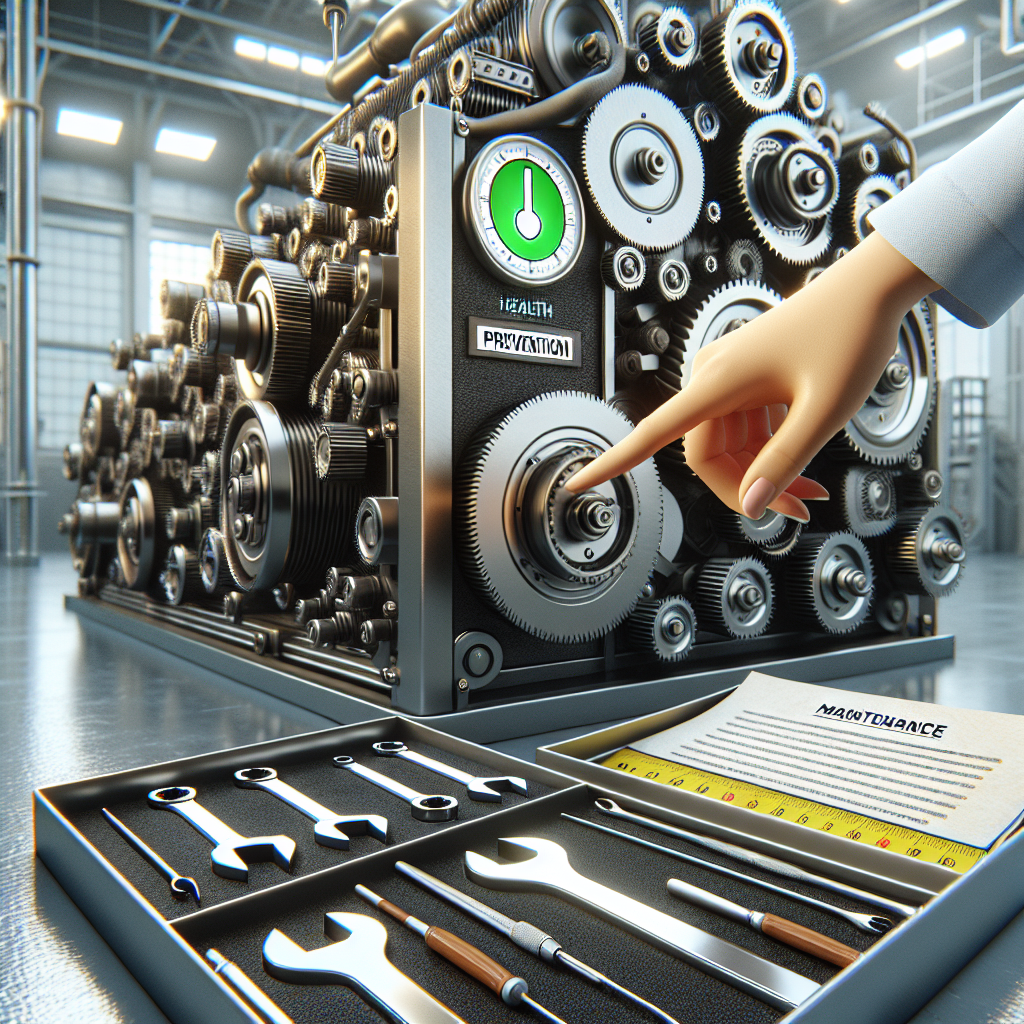Your cart is currently empty!
Proactive Maintenance: Preventing Equipment Failures Before They Happen

Proactive Maintenance: Preventing Equipment Failures Before They Happen
In any industry that relies on equipment to function efficiently, equipment failures can be a major setback. Not only can they lead to costly repairs and replacements, but they can also result in downtime that can impact productivity and profitability. This is why proactive maintenance is crucial in preventing equipment failures before they happen.
Proactive maintenance involves regularly monitoring and inspecting equipment to identify and address any potential issues before they escalate into major problems. By taking a proactive approach to maintenance, companies can avoid unexpected breakdowns and keep their equipment running smoothly.
One of the key benefits of proactive maintenance is that it can help extend the lifespan of equipment. By regularly inspecting and maintaining equipment, companies can identify and address any issues that could potentially shorten the lifespan of the equipment. This can ultimately save companies money by reducing the need for costly repairs and replacements.
Another benefit of proactive maintenance is that it can help improve the overall efficiency of equipment. By keeping equipment well-maintained and in good working condition, companies can ensure that it operates at peak performance levels. This can result in increased productivity and reduced downtime, ultimately leading to improved profitability.
In addition to extending the lifespan of equipment and improving efficiency, proactive maintenance can also help enhance workplace safety. Equipment that is well-maintained is less likely to malfunction or break down unexpectedly, reducing the risk of accidents and injuries in the workplace.
To implement a proactive maintenance program, companies should establish a regular schedule for inspecting and maintaining equipment. This can include tasks such as lubricating moving parts, cleaning filters, checking for signs of wear and tear, and conducting routine inspections. Companies should also keep detailed records of maintenance activities and equipment performance to track any trends or issues that may arise.
Overall, proactive maintenance is a crucial component of any successful maintenance strategy. By regularly monitoring and maintaining equipment, companies can prevent equipment failures before they happen, ultimately saving time, money, and resources in the long run. By prioritizing proactive maintenance, companies can ensure that their equipment remains in good working condition, leading to improved efficiency, productivity, and safety in the workplace.

Leave a Reply